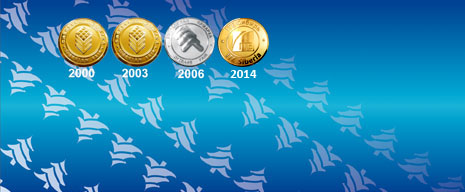 |
 |
Research quest
The Project Approach to the Development of Financial Culture in an Educational Organization
This paper reveals the logic and structure of the advanced training program for educational leaders through the project approach. As a result, the basic elements of the educational model for the development of financial culture in an educational organization are presented. In conclusion, the authors state the fact that the teacher has the opportunity to build up the system for the formation of a culture of competent financial behavior of children, adults, pensioners, and other target audiences.
The Development of Empathy as a Professionally Significant Personal Quality of the Future Teacher
A modern teacher, educator, undoubtedly must have the ability to feel the inner world of pupils, empathize with their feelings and master the technologies for the development of the emotional sphere of children. At the same time, there is a contradiction between the understanding of the importance of a high level of empathy development in teachers and an insufficient understanding of technologies that allow developing this feeling in future teachers within the framework of professional education.
Distribution of Lateral Organization Profile Types in the Groups of Initial Sports Training and in Different Sports
The article opens a series of publications devoted to the possibility of using the profile of lateral organization (PLO), which characterizes the functional interhemispheric asymmetry of the brain, as one of the marker factors in the structure of phenogenetic characteristics of the human constitution. Consideration of PLO from the standpoint of integrative anthropology is aimed at solving a number of psychological, pedagogical and medico-biological issues, including optimization of sports selection, sports orientation and educational and training process of sports.
Anthropometrical Indicators and Biomotorics for Young Athletes with Different Types Profile of Lateral Organization
This article continues a series of publications devoted to the possibility of using the profile of lateral organization (PLO), which characterizes the functional interhemispheric asymmetry of the brain, as one of the marker factors in the structure of phenogenetic characteristics of the human constitution. The consideration of PLO from the viewpoint of integrative anthropology is aimed at solving a number of psychological, pedagogical and medico-biological issues, including optimization of sports selection, sports orientation, the educational and training process of sports.
Preparing Future Teachers for Health-Promoting Activities with Younger Students
The relevance of this article is due to the need to prepare future primary school teachers for health-saving activities with younger students. The goal of this research is twofold, a) to determine the content of a special course that contributes to the effective preparation of students for health-saving activities in primary schools, and b) to verify its effectiveness. Using the modified method of M. Rokich and the author's methods, three levels of readiness of future teachers for health-saving activities with younger students were identified and characterized: high, medium, and low.
Modeling a Teacher Certification in the Frameworks of Life-Long Tea che rs ’ Education
Both the certification and professional development of the teaching staff is under discussion as crucial issues of the national educational policy. This article presents the theoretical modeling of the certification system that aims at not just fixing the level of professional skills but encouraging in the teachers the sense of update and development («certification for development») in the frameworks of the "360 degrees" Model.
Methodological Skill of a Modern History Teacher: How to Keep Students Motivated in Historical Knowledge
Motivating students to understand the historical process is one of the key tasks of modern school education.The article raises questions about the culture and professional awareness of the history teacher of the 21st century: 1. Why study history? 2. What are the features of studying history at school? School history and historical science — what is their relationship? 3. What should be studied in a school history course? 4. How should history be taught in school? 5. Why are there changes in history teaching? When do they arise? 6.
The Role of Research in Mathematics in the Formation of Critical Thinking in Students
The article substantiates the need for formation of students' critical thinking, and various approaches to the definition of this concept are considered. The purpose of the work: to study the connection between the performance of students in the mathematics and the formation of critical thinking.
USE as an Indicator of the State for the Language Education in the Region
Statement of the problem. The issue of assessing the quality of language education among graduates of secondary schools, gymnasiums and lyceums in the Russian Federation remains an unresolved problem. This, in particular, is due to the fact that for many years the evaluation system at school depended on teachers themselves: they both created evaluation materials and also carried out verification. The purpose of the study. Analyze the situation with language education in the region and give recommendations for training and completing test tasks. The scientific exposition.
Functional Literacy of Primary School Students as a Basis for Implementation of the Conceptual Model “Lifelong Learning”: Methodological Design of Learning Tasks
Problem statement concerns the innovation pedagogical trend, the concept of "Lifelong learning", which is becoming an integral part of modern public education, multiplying the potential success and demand for competitive specialists who are ready for permanent up skilling.
- « первая
- ‹ предыдущая
- 1
- 2
- 3
- 4
- 5
- 6
- 7
- 8
- 9
- …
- следующая ›
- последняя »
Сайт поддерживается в Новосибирском институте повышения квалификации и переподготовки работников образования и является участником Новосибирской открытой образовательной сети

